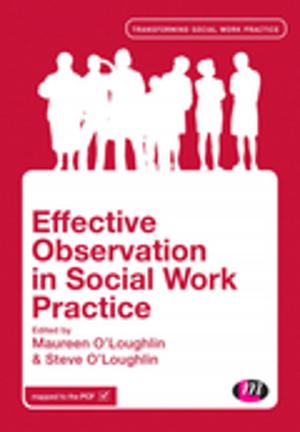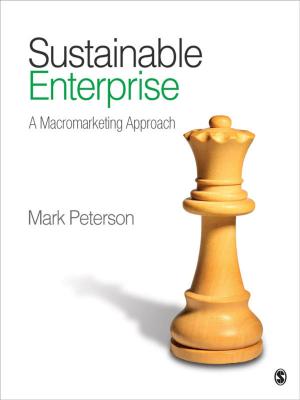Handling Qualitative Data
A Practical Guide
Nonfiction, Social & Cultural Studies, Social Science, Methodology, Reference & Language, Reference, Research| Author: | Professor Lyn Richards | ISBN: | 9781473908819 |
| Publisher: | SAGE Publications | Publication: | November 3, 2014 |
| Imprint: | SAGE Publications Ltd | Language: | English |
| Author: | Professor Lyn Richards |
| ISBN: | 9781473908819 |
| Publisher: | SAGE Publications |
| Publication: | November 3, 2014 |
| Imprint: | SAGE Publications Ltd |
| Language: | English |
The Third Edition of Lyn Richards' best-selling book is the perfect introduction to qualitative research for students and practitioners. Recognizing that for many new researchers dealing with data is the main point of departure, this book helps them to acquire an understanding of the skills and methodological issues that are central to qualitative research. Author Lyn Richards provides practical guidance on how to handle, reflect on and make sense of rich data, while at the same time showing how a consideration of methods and their philosophical underpinnings informs how we should best handle our data.
Detailed sections cover: the processes of making, meeting, sorting, coding, documenting, and exploring qualitative data; how to see a study as a whole and write it, and making and justifying claims. Each chapter smoothly integrates software use with discussion of the main challenges that software users are likely to encounter. Novice researchers who use this book will be able to achieve valid and useful outcomes from qualitative analysis, and ensure they do justice to their data.
The Third Edition of Lyn Richards' best-selling book is the perfect introduction to qualitative research for students and practitioners. Recognizing that for many new researchers dealing with data is the main point of departure, this book helps them to acquire an understanding of the skills and methodological issues that are central to qualitative research. Author Lyn Richards provides practical guidance on how to handle, reflect on and make sense of rich data, while at the same time showing how a consideration of methods and their philosophical underpinnings informs how we should best handle our data.
Detailed sections cover: the processes of making, meeting, sorting, coding, documenting, and exploring qualitative data; how to see a study as a whole and write it, and making and justifying claims. Each chapter smoothly integrates software use with discussion of the main challenges that software users are likely to encounter. Novice researchers who use this book will be able to achieve valid and useful outcomes from qualitative analysis, and ensure they do justice to their data.















